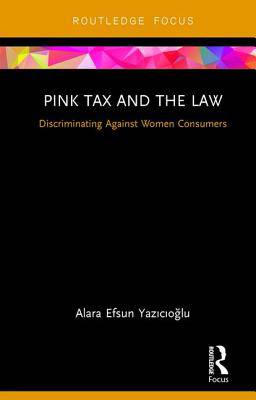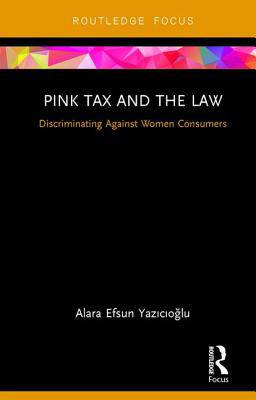
- Retrait gratuit dans votre magasin Club
- 7.000.000 titres dans notre catalogue
- Payer en toute sécurité
- Toujours un magasin près de chez vous
- Retrait gratuit dans votre magasin Club
- 7.000.0000 titres dans notre catalogue
- Payer en toute sécurité
- Toujours un magasin près de chez vous
Pink Tax and the Law
Discriminating Against Women Consumers
Alara Efsun YazıcıoğluDescription
The emergence of the terms 'pink tax' and 'tampon tax' in everyday language suggests that women, who already suffer from an economic disadvantage due to the gender wage gap, are put in an even more detrimental position by means of 'discriminatory consumption taxes'. This book is the first conducting a legal analysis to establish to what extent this public perception is accurate.
Does the practice of 'pink tax' effectively amount to a tax in the legal sense? Does the so-called 'tampon tax' genuinely constitute an anomaly within the general consumption tax system? Most importantly, can these two 'taxes' be legally qualified as discriminatory?
This book provides scientific answers to these questions. It first cuts through the existent information clutter by elucidating the pertinent economic, sociological and psychological components of the practices referred to as 'pink tax' and 'tampon tax'. It then proceeds with a thorough legal analysis of all relevant aspects to determine whether women are indeed subject to discriminatory consumption taxes.
It is well-established that women earn less than men. This book investigates if they simultaneously pay more due to 'discriminatory consumption taxes'.
Spécifications
Parties prenantes
- Auteur(s) :
- Editeur:
Contenu
- Nombre de pages :
- 102
- Langue:
- Anglais
Caractéristiques
- EAN:
- 9781138597297
- Date de parution :
- 05-06-18
- Format:
- Livre relié
- Format numérique:
- Genaaid
- Dimensions :
- 140 mm x 218 mm
- Poids :
- 249 g

Les avis
Nous publions uniquement les avis qui respectent les conditions requises. Consultez nos conditions pour les avis.






